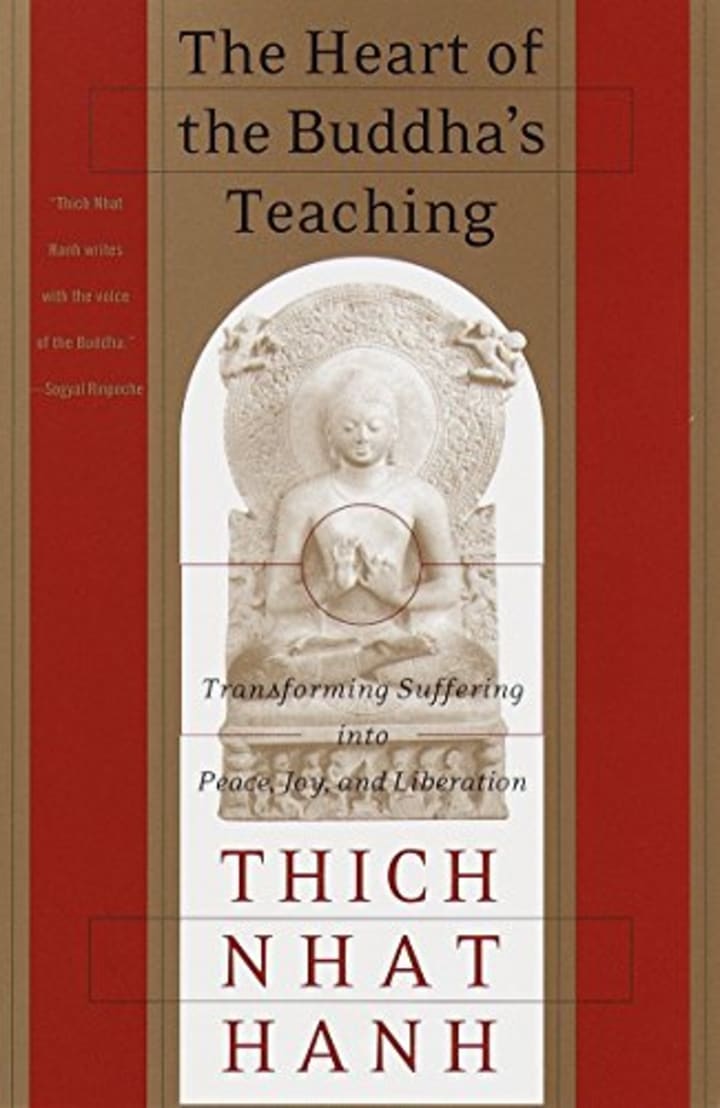
Mental health is an important aspect of our overall well-being. It affects how we think, feel, and behave in our daily lives. Buddhism, a spiritual tradition that originated in ancient India, has much to offer when it comes to promoting mental health.
At the heart of Buddhist teachings is the idea that suffering is an inevitable part of life. However, Buddhism also teaches that suffering can be overcome through the cultivation of mindfulness, wisdom, and compassion. By practicing these qualities, we can develop a greater sense of inner peace and well-being, even in the midst of difficult circumstances.
One of the key practices in Buddhism is mindfulness meditation. This involves paying attention to our thoughts, feelings, and sensations in the present moment, without judgment or attachment. Through this practice, we can develop a greater awareness of our mental and emotional states, and learn to respond to them in a more skillful way.
Another important aspect of Buddhist teachings is the cultivation of wisdom. This involves developing a deeper understanding of the nature of reality, and recognizing the impermanent and interconnected nature of all things. By seeing through the illusion of a fixed and separate self, we can develop a greater sense of equanimity and compassion towards ourselves and others.
Compassion is another central aspect of Buddhism, and is often described as the wish for all beings to be free from suffering. By cultivating compassion, we can develop a greater sense of empathy and understanding towards others, and work to alleviate their suffering. This can be especially helpful in promoting mental health, as it can help us to develop more supportive and caring relationships with those around us.
Buddhist teachings also emphasize the importance of ethical conduct, or living in a way that is aligned with the principles of kindness, generosity, and non-harm. By acting in accordance with these principles, we can develop greater integrity and inner peace, and contribute to the well-being of those around us.
In addition to these practices, Buddhism also offers a range of techniques for working with difficult emotions such as anxiety, anger, and depression. These include practices such as loving-kindness meditation, which involves cultivating a sense of warmth and affection towards oneself and others, and Tonglen meditation, which involves breathing in the suffering of others and sending out compassion and healing.
Overall, the teachings of Buddhism offer a rich and comprehensive approach to promoting mental health. By cultivating mindfulness, wisdom, compassion, ethical conduct, and a range of other practices, we can develop a greater sense of inner peace, well-being, and resilience in the face of life's challenges. Whether you are a long-time practitioner of Buddhism or simply looking for ways to promote your own mental health, the teachings of Buddhism offer a wealth of wisdom and guidance that can be of great benefit.

he Heart of the Buddha's Teaching: Transforming Suffering into Peace, Joy, and Liberation is a book written by Thich Nhat Hanh, a Vietnamese Zen Master and teacher. The book is a comprehensive introduction to the core teachings of Buddhism and offers practical guidance on how to apply these teachings to our daily lives.
The book is divided into three parts. The first part introduces the Four Noble Truths, the foundational teaching of Buddhism. Thich Nhat Hanh explains how the Four Noble Truths offer a diagnosis of the root causes of suffering, and provides practical guidance on how to transform suffering into peace, joy, and liberation.
The second part of the book explores the Noble Eightfold Path, which is the path of practice that leads to the cessation of suffering. Thich Nhat Hanh offers a detailed explanation of each aspect of the path, including Right View, Right Mindfulness, and Right Concentration. He also provides practical exercises and meditations to help readers cultivate these qualities in their own lives.
The final part of the book explores the concept of interbeing, which is the idea that all things are interconnected and interdependent. Thich Nhat Hanh explains how understanding interbeing can help us to overcome feelings of separateness and develop a greater sense of compassion and interconnectedness with all beings.
Throughout the book, Thich Nhat Hanh emphasizes the importance of mindfulness and meditation as key practices for transforming suffering and cultivating peace and joy. He also emphasizes the importance of ethical conduct, or living in a way that is aligned with the principles of kindness, generosity, and non-harm.
Overall, The Heart of the Buddha's Teaching is a comprehensive and accessible introduction to the core teachings of Buddhism. Thich Nhat Hanh's warm and compassionate style makes these teachings come alive, offering practical guidance on how to apply them to our daily lives. Whether you are a long-time practitioner of Buddhism or simply interested in exploring these teachings for the first time, this book is an excellent resource for deepening your understanding of Buddhism and transforming suffering into peace, joy, and liberation.





Comments
There are no comments for this story
Be the first to respond and start the conversation.